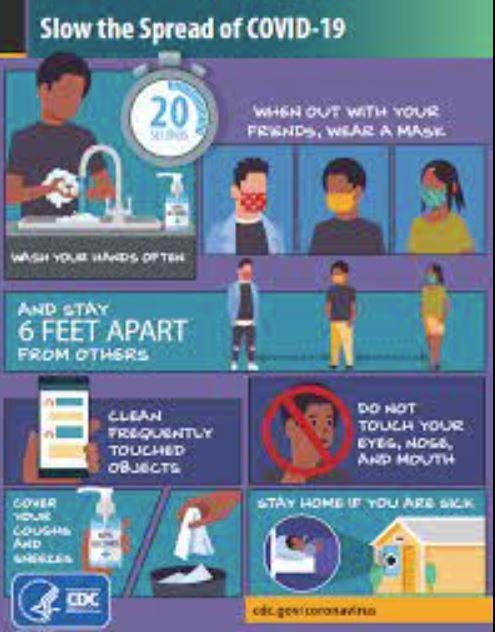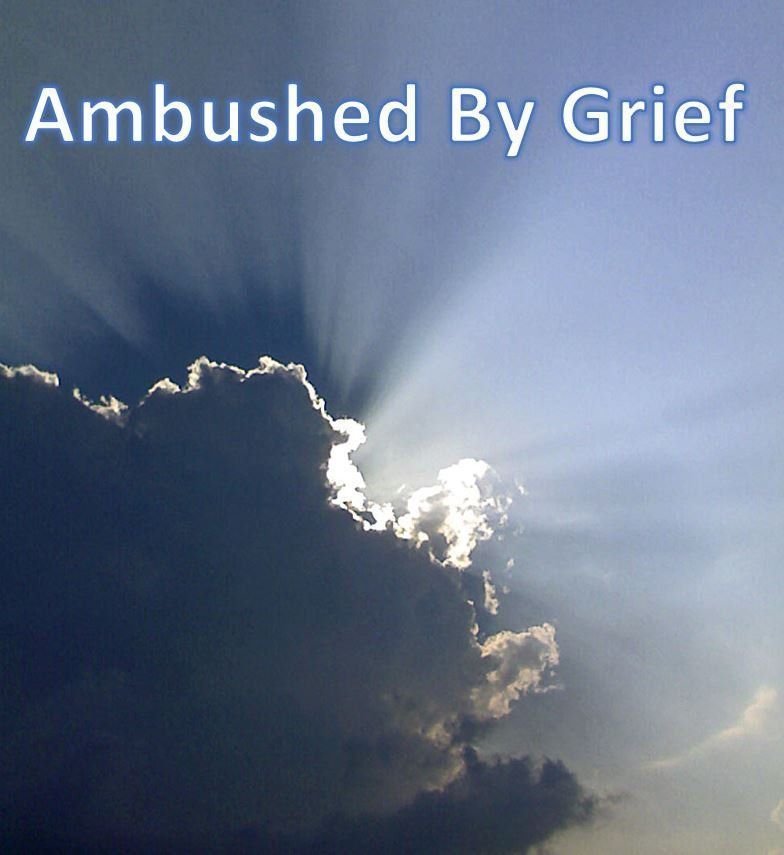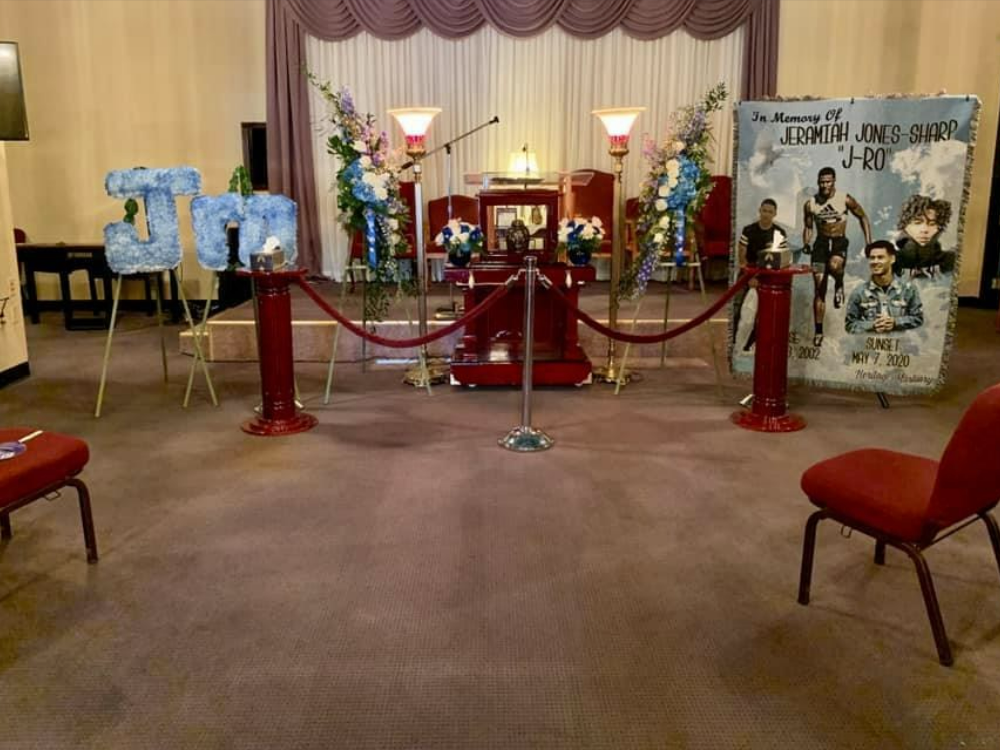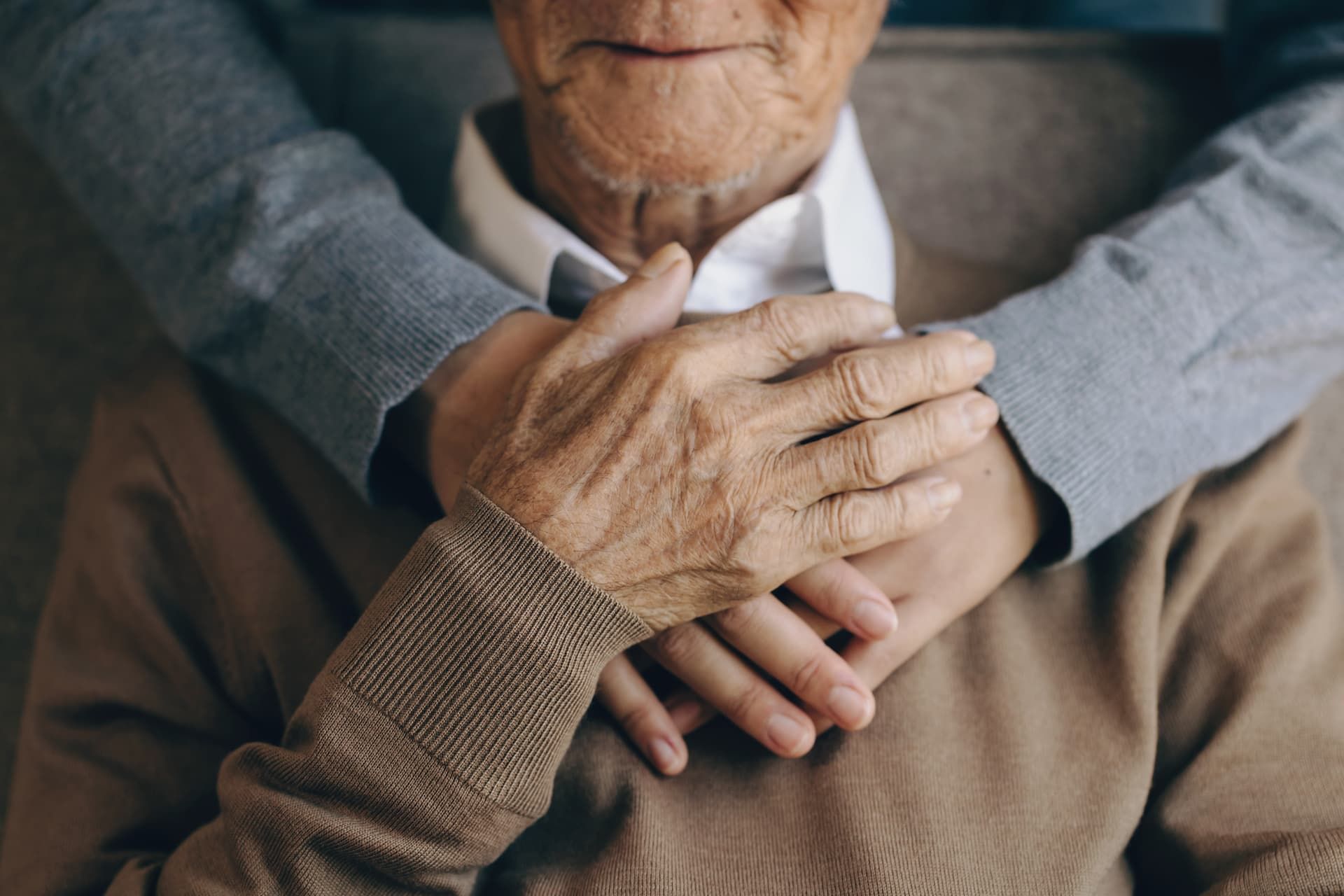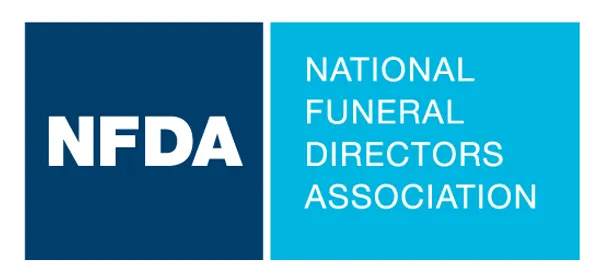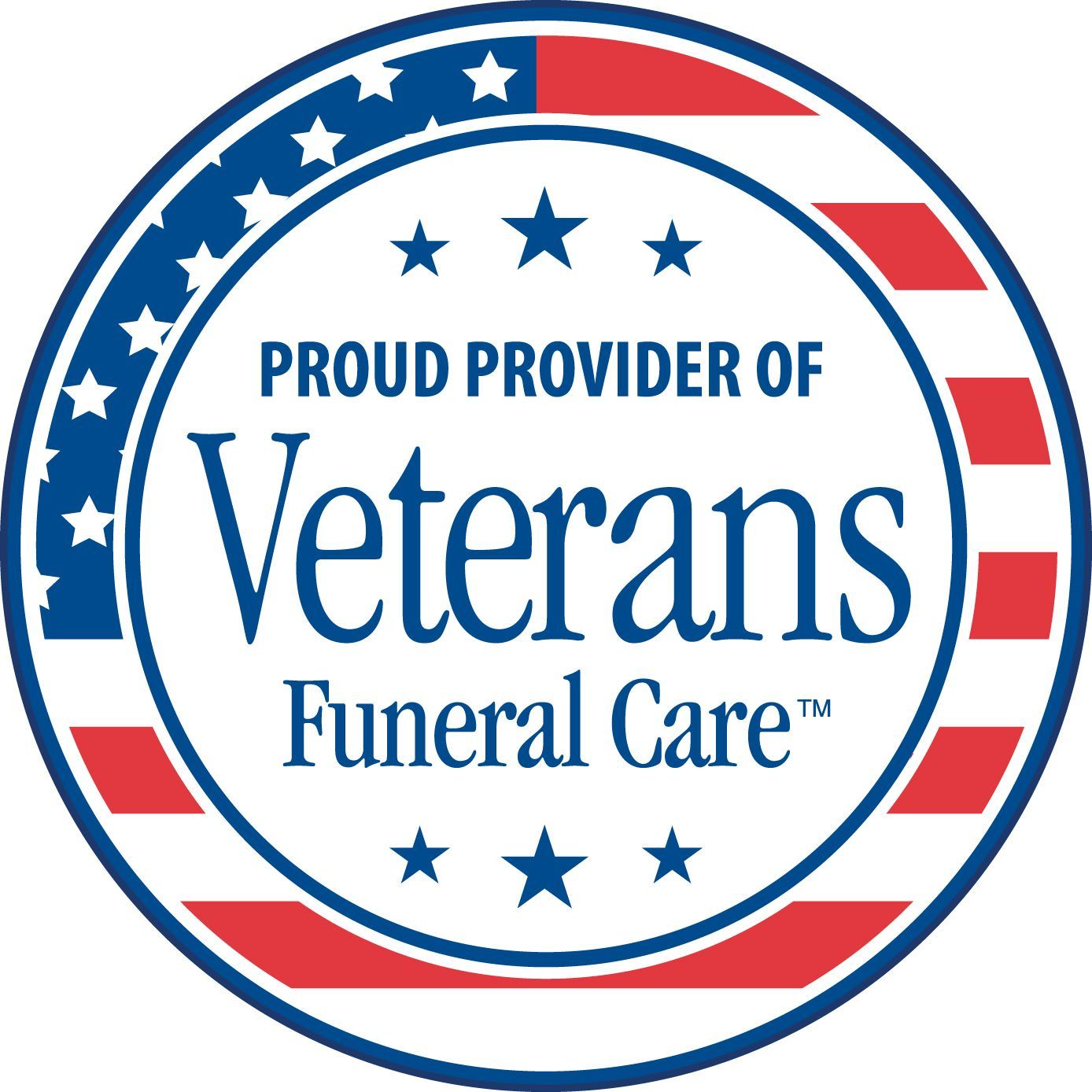Funeral Procession Etiquette and Guideline
Funeral Procession Etiquette and Guideline
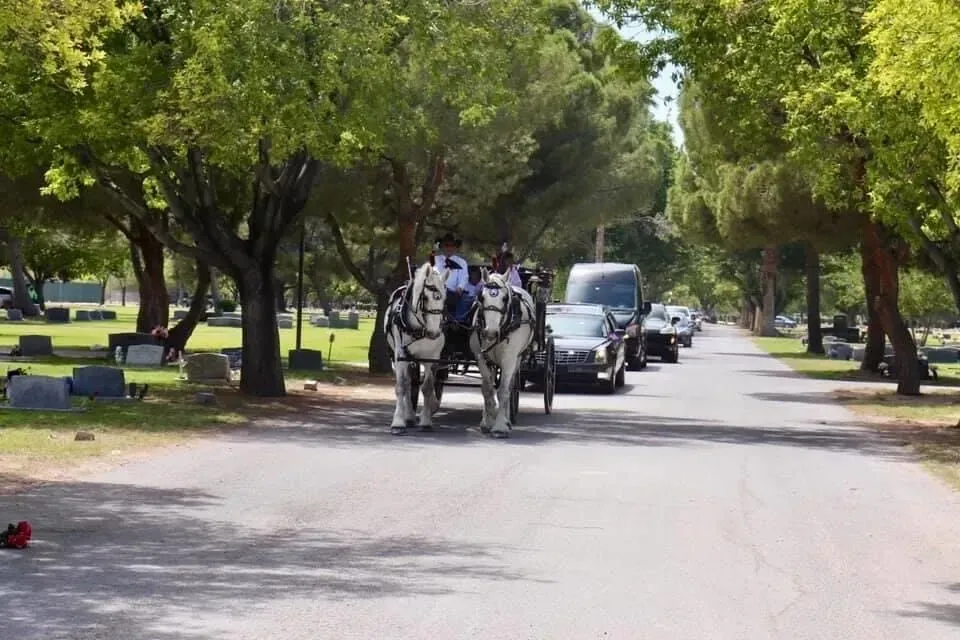
Most of us have either witnessed or been part of a funeral procession. The images are somber and moving, alerting the entire community that one of their own has died. Growing up in small-town Iowa, I remember more than a few occasions when my parents pulled over our car to wait for what seemed to be an endless stream of cars driving by in slow-motion, headlights beaming, flags proudly waving. Once the final car passed, we’d proceed.
Now, when I encounter a funeral procession, I follow the same ritual that I learned from my parents. But was I (or were they) following the proper etiquette and guidelines? Whether you’re part of a funeral procession or encounter one while driving, understanding and following the etiquette will ensure that you show respect for those who are laying their loved one to rest.
WHAT IS THE PURPOSE OF A FUNERAL PROCESSION?
Whether the funeral procession takes place in a small town, a large metropolitan area or is a televised tribute for a world-famous figure, the funeral procession is often intended to activate and unify community support.
Sometimes, a funeral procession is necessary when the memorial service and burial site are held in two different locations. This creates a need for an organized procession allowing all those who are honoring the death of a family member or friend to travel safely from one location to the next. This is especially important for out-of-town attendees who may not know how to locate their loved one’s final resting place.
ARE THERE FUNERAL PROCESSION LAWS?
There are no national laws for funeral processions. Rules vary by state. For example, in some states, cars that are in a funeral procession may run a red light if the lead car has already passed through an intersection. And, while it’s kind and respectful to pull over for a funeral procession, in many states, it’s also legally required. Drivers can actually be ticketed by police officers if they do not yield the right-of-way to funeral processions.
It’s a good idea to be aware of the laws governing funeral processions in your city and state. There are different customs for different religions and cultures as well, so if you aren't sure about what to do, your local funeral home is the perfect resource. In the meantime, here are some general guidelines to follow whether you are part of a funeral procession or encounter one while driving.
WHAT TO DO WHEN PARTICIPATING IN A FUNERAL PROCESSION.
If you are participating in a funeral procession, keep these general guidelines in mind:
Arrive at the funeral service early. A funeral home staff member will provide instructions on where to park and answer any questions.
Find out if it is okay to proceed through red lights or stop signs in order to maintain a safe distance to the car in front of you. Again, some states legally allow this, while others do not.
Flags are often used as a way to identify which cars are in the procession. If you are given a flag, place it on your car as specified.
Upon starting the procession, be sure your headlights are on – even if it’s during the day. This helps alert others that you are part of the funeral procession.
Keep a close, but safe distance from the car in front of you to prevent other cars from attempting to merge into the procession.
WHAT TO DO WHEN YOU ENCOUNTER A FUNERAL PROCESSION.
Again, the legal requirements will vary by geographic area. But following these guidelines will help you act respectfully when you encounter a funeral procession:
Yield to funeral processions going through intersections, even if you have the right of way.
When possible, pull over to the side of the road like you would for an ambulance or other emergency vehicle.
Don’t try to join or cut off cars in the procession.
Don’t attempt to pass a funeral procession.
Avoid honking your horn.
Regardless of where you live, you should always show respect for funeral processions. And because rules vary, we recommend that you consult your local funeral service provider for essential information about state and local laws so that you understand how to honor this final rite of passage, signifying the transition between life and death for so many.
Hold A Chapel Or Home Memorial Service
One way to honor your loved one’s life is by arranging a memorial service. It is the family’s decision to have the cremated remains (ashes) of your loved present or not during the memorial service. Families will coordinate with our professional and caring funeral directors to ensure their loved one’s cremated remains present. After the family has decided if the loved one will be present. Then, the arrangement style should be known, as it will become the driving factor for how the memorial service will flow from event to event and or from person to person. There are two types of structures concerning memorials services: formal and informal. If you would like to celebrate someone who has passed in a formal way, call 702-852-1464, and schedule an appointment with a funeral director/arranger to reverse the chapel for the memorial service. They are the experts in planning these services and handling everything with compassion, and families rely on them to make final arrangements. Chapel services also give extended family, friends, co-workers, and acquaintances the opportunity to grieve and share their condolences with you in a formal setting.
About Fifteen percent of the families, we serve want to honor their loved one in an informal way by holding a chapel or home memorial service. Heritage trusted cremation experts are even available to you, your family, and your small group of friends to guide you through a beautiful informal chapel memorial flow to honor your loved one family style. This event allows the sharing multiple loving memories to include a slideshow, short talks, poems, music, food, and end with a dove or balloon release. On the other hand there is the home venue. The Home memorials give smaller groups of family members a chance to come together and mourn in a more comfortable setting, more casual, and often are held in a potluck style. Where family comes together with photos and spends time talking about their loved one. Family and friends will draw strengthen from one another as they laugh and share good memories. These memorial services incorporate meaningful gestures to honor your loved one. For example: There maybe a life story board on display, a memory table set up to share a memory, huge photos on display of the loved one, personal affects of loved ones, prepare and share his favorite foods and play his favorite game.
Both memorial styles may be either as formal or as informal as the family would like. They may be as religious or as void of religion as the family would like to celebrate. In short, the main purpose; set goal, and or outcome is for family and friend to gather and celebrate the life of their loved one. While celebrating your loved one do not forget to ask the children if they would like to be involved. For children of age grief just as adults’ grief. However, a home memorial services may be a more comfortable environment, making grief easier for the child. Some kids need help coping with grief, and they may not be comfortable at a traditional funeral. A home memorial service, however, may give them a chance to grieve with family members in a familiar setting. Kids also are creative, and they may draft a story, tell your loved one’s favorite joke, or make a piece of art for the home service. Encourage their creativity to help them through their grief.
What to Expect Before the Funeral
It's a common enough experience; a loved one dies and now you've got to face something you've never ever done before. You've got to go to a funeral home to make their funeral arrangements. Now, not only are you emotionally affected by their death, you're anxious and really need to know what to expect when you arrive. So, let's talk about that for a bit.
You should know that we've taken great pains to make your experience with us as easy as possible. Here's how:
- We've put a lot of work into making our funeral home a pleasant place to spend time. That means our interior design is easy-on-the-eye, the rooms are spacious yet cozy, and the furniture is comfortable.
- Our staff is both professional yet personable. We believe that when you leave, you'll consider us more than funeral directors; we'll be well-on-our-way to being friends. Friends you can really trust to compassionately care for your loved one... and for your family.
- We've streamlined the funeral arrangement process. Since we've been making funeral arrangements with families for a very long time, we've had ample opportunity to learn the easiest, most efficient way to get through the process. Believe us when we say; it won't take as long as you think.
- Our team is trained to handle all the details. And we do mean all of them. From filing insurance, social security or veterans administration paperwork; to greeting and bidding farewell to your guests—and everything in between.
Exactly What Happens at the Funeral Home?
While we can't speak to every situation, we can tell you the bare basics of what to expect on your first visit to our funeral home.
- When you come through the front door, you will be greeted warmly by a staff member. Names will be exchanged, and hands shaken in cordiality. Some words of comfort will be offered.
- Once informed of the reason for your visit, you will be directed to the funeral director's office or arrangement office.
- Before the funeral arrangement conversation goes very far, you will be given a copy of our General Price List, Casket Price List, and any other appropriate price-related documents. This is done to ensure compliance with the Federal Trade Commission's Funeral Rule.
The funeral director will then ask you a number of questions. Think about it this way: your conversation is intended to do two things:
- Share accurate biographical details of the deceased to assist the funeral director in completing relevant paperwork; and
- Come to an agreement about the plans for the funeral, memorial service, or celebration of life.
Clearly State the Facts
When it comes to properly completing death paperwork, and writing a detailed obituary, accuracy is everything. So, when it comes to the first task, that of sharing your loved one's biographical details, you'll want to bring as much documentation of the following as possible:
- The deceased's full name
- Their Social Security number
- Parent's names
- Spouse and children's names
- Maiden name of mother
- Marital status
- Educational history
- History of military service
- Work history
- Hobbies and interests
- Church affiliation
- A list of organizational and club memberships
- A recent photograph
Naturally, if you're unable to bring any of this information, you can always call us later to share whatever is missing.
Planning for the Funeral Event
The second step in the funeral arrangement conference, that of planning a meaningful ceremony to pay tribute and celebrate the life of your loved one is really at the heart of what you'll be doing that day. In order to facilitate things, we ask that you bring:
- Pre-arrangement papers, if applicable
- Clothes in which to bury or cremate your loved one
- Cemetery property information, if applicable
- A list of preferred charities for memorial donations, if applicable
- A list of pallbearers, if applicable
- Desired musical and readings selections
There are really two more things to bring: your memories, and your heart-driven creative thinking. After all, we will be guided in planning your loved one's funeral, memorial service, or celebration-of-life by your stories, personal perceptions, and insights into their character and lifestyle.
In the End
Our time together will take only as long as you need it to take. Not only that, while the time you spend with us in your first visit can be very intense and emotionally-draining; you'll be among people who really care about your welfare. We'll support you throughout the funeral arrangement process, in any way you need us to; and we believe you'll find that when you leave, you've really had very little to be anxious about. But if you still have any questions or concerns, call us today at to learn more about what to expect when you come to our funeral home.
What to Expect During the Funeral
Much like any other social event, a funeral service can present us with unique challenges–especially if we don't know what to expect. Here's a short list of things you can expect during a funeral:
- We do our best to provide adequate parking facilities. Yet, parking may be hard to find, so do your best to arrive 10-15 minutes early.
- Depending on the location of the funeral, your entrance may be governed by protocol. Often, guests are asked to remain unseated until the family has taken their seats. Sometimes ushers are provided to escort you to your seat. If you're unclear as to what's expected, just watch others for your cues--or ask the funeral attendant.
- Again, depending on the location, the ceremony may be officiated by a pastor, minister, celebrant or funeral director.
- Remember that the front seats are intended for immediate family members, so choose a seat near the middle; or if you didn't know the deceased well, sit near the back of the room.
- You may receive a copy of the funeral order-of-service, which details what will happen during the ceremony. It will tell you exactly which hymns will be sung, and specifically names the prayers to be read. It's like a program at a theater or symphony performance: the funeral order-of-service is a very handy thing to have. If you're given one, hang on to it.
- Depending on what's in the order-of-service, you will have the opportunity to participate in various activities. You may be asked to stand to sing a hymn or kneel in prayer; only participate to the degree you feel comfortable.
- If the service is less traditional and more a celebration-of-life, you may be asked to close the service with a release of a balloon. Or you may find yourself requested to place a flower in the casket. Some families ask their guests to write a note to the deceased and place it in the casket. We suggest doing only as much as you feel comfortable doing.
Will People Cry?
Even at weddings and baptisms, people cry. Just like at a funeral, these pivotal life moments are very emotionally-charged. That means you can certainly expect to find people crying at a funeral. It's always helpful to remember to bring a travel pack of tissues with you; however, the funeral home staff will also have access to tissues if you—or the person seated next to you—has a need to wipe their eyes.
But, here's something you should also know: people laugh at funerals too. A funeral is a rich bittersweet mixture of sorrow and joy. In fact, when we're at a funeral (which is fairly often) the behaviors of guests remind us of the well-known remark from Theodore Geisel, better known as Dr. Seuss: “Don't cry because it's over, smile because it happened.”
You'll see tears, and you may hear some laughter. Without doubt, emotions run high at funerals; sometimes there's even a demonstration of anger by one or more of the survivors. Expect people to be on their best behavior, but also know that anything can happen.
How to Leave the Funeral
The funeral officiant will make it very clear that the funeral service is over. They will invite the the immediate family and close friends to leave the building first. Unlike at the end of a theater performance, people don't simply stand up and walk out. Instead, they wait for the rows in front of them to empty before stepping out into the aisle.
Guests and family may collect outside the location for some quiet conversation. If you are now ready to leave, do your best to say a sincere good-bye to the bereaved family.
If you choose to follow the hearse and casket to the cemetery or crematory, you'll be given clear directions by members of the funeral home staff.
If you choose to leave at this point in the funeral, make a quiet, discreet exit. Make a note to yourself to contact the bereaved family by phone in the next week or so. Offer them some time to for them to talk about their loss; and if you're willing, make a few suggestions about chores and other things you could do for them. Know that even if they decline your offer, they'll be delighted to know you're thinking of them enough to call.
Call Us to Learn More
Whether this is your first funeral service, or your 100th; it can be an unnerving experience. If you've got specific questions about what to expect during a funeral service, give us a call. We'll be privileged to assist you.
What to Expect After the Funeral
After a funeral, grieving family members often ask us, "What happens next? Here's what happens after a funeral.
The Early Days After Loss
The funeral or memorial service is over. Things have begun to grow quiet; maybe the phone isn't ringing as much as it was, or fewer people are stopping by to check in on you. Your loved one's death continues to become more of a reality. And the very thought of facing your life over the next few weeks and months fills you both with loneliness and a sense of dread. It all feels like way too much to deal with, and we'd like you to know that right now it's okay to take care of yourself first.
You've got two important things to do in the coming weeks and months. As much as possible, you need to practice exquisite self-care. You also need to spend some time focused on completing the paperwork which will officially change the status of your loved one with banks and creditors; employers, insurance companies, and mortgage holders. This can be a slow process; so be prepared for the "long haul".
What is Your Relationship Status?
Let's be honest here; the degree to which your grief disempowers you, as well as the amount of flotsam and jetsam (let's just call it "paperwork") you will have to deal with both depend on the relationship you shared with the deceased. If you are the surviving spouse, a daughter or son, or have been declared as the designated executor, the responsibilities you have over the death paperwork will be much more extensive than if you were merely a loving niece, nephew or friend.
The Paperwork
Here is a checklist of the tasks you may be facing in the coming weeks. It's time to get organized. Locate and safeguard as many of the documents listed below (be sure to put each into in a designated set of file folders, and keep them within easy reach):
- Birth certificate
- Driver's License or State Identification Card
- Passport (if applicable)
- Marriage certificate
- Divorce papers (if applicable)
- Deeds and Titles to real and personal property
- Veteran's Administration Claim Number (or service discharge papers)
- Recent Income Tax Forms
- W-2 forms (if employed)
- Recent hospitalization records
- Insurance documents: Life, Health, Automobile (there may be more than one policy in each category)
17 Things to Do After the Funeral
- Before you do anything, get a notebook. You'll want to record the date and time of every phone conversation, email or postal communication; if you did it, write it down. Be sure to include the full name of the person you spoke to, their job title; and their employer identification or extension number.
- Request certified copies of the Death Certificate. Speak with one of our funeral professionals to determine just how many you will require.
- Check to see if deceased had left a will. This may require contacting the family attorney, checking your safe deposit box or home safe or the state Will Registry.
- Get the mail redirected, if applicable. Visit the United States Postal Service website to learn more about how to submit a Change of Address form. Or stop by your local post office.
- Stop health insurance coverage. You may need to provide them with additional information, so keep your relevant paperwork handy.
- Contact employer or union. Determine if there are any death-related benefits available, ask (and answer) questions, and change any relevant contact information.
- Make sure to pay the bills. Some folks have their bills paid automatically, but if this isn't the case here, you'll need to take care of them before they become delinquent. If you fear delinquency, you may wish to speak with a representative to work out a payment plan.
- Initiate probate. Even if you're not the executor, if you have an interest in the estate, it's possible for you initiate probate court proceedings (but only if the designated executor of the estate fails to do so in a timely way). You may want to find and hire an estate settlement attorney.
- Notify utility departments. Depending on the situation, the accounts may be closed, or the account owner's name and contact details changed.
- Transfer title of real and personal property. Whether it's an automobile, boat, motorcycle, RV, or plane; you'll need to inform your state department of motor vehicles of the change in ownership. At the very same time, notify any related vehicular or personal property insurance companies of the change in status.
- Close or modify credit card accounts. You will probably need to provide each of them with a certified copy of the death certificate. Again, keep that set of file folders handy.
- Contact life insurance companies. Not everyone has life insurance; but some people have more than one policy. No matter how many policies were in force, you will probably need to provide each of them with a certified copy of the death certificate for each claim made.
- Notify other policy holders of the change in "Beneficiary" status. If your loved one was a designated beneficiary on the insurance policies; investment or banking accounts of other individuals, then you'll need to notify them of the death of a beneficiary.
- Arrange to close or modify bank accounts. Depending on your relationship to the deceased, you may be entitled to convert into your name.
- Change stocks and bonds into your name. Again, this depends on your relationship status to the deceased. To do this, you'll need to provide certified copy of the death certificate to all organizations involved.
- Report the death to other agencies. Depending on the age or military status of the deceased, you may need to notify either the Social Security Administration or the Veterans Administration (or both). Other agencies of interest include membership organizations (professional or avocational associations, Masonic lodges, Rotary Clubs, gym and golf course memberships — just to name a few).
- Tend to their digital estate. If they were active on social media, you'll need to inform the specific networking sites of the change in status. You will need to close email accounts as well as any online banking portal or investment accounts.
Do You Have Any Questions?
We've had the privilege of serving many families over the years, and during that time we've found that the time after the funeral is different for everyone involved. If we can be of assistance to you during this challenging time of change and adjustment, simply pick up the phone and call us . We'll do our very best to support you.
Donate Books to a Local Library in Memory of Your Loved One
Book donations may benefit the entire community, as everyone may borrow them. Libraries place special placards inside the donated books stating the books available in someone’s memory. Each time someone checks out the books you donate. They will read your loved one’s name. How special is this; a true way to honor your loved one. At the opening of each book, as they read your loved one’s name everyone will know how special they must have been to be honored in such a way.
No matter what way you may choose to honor your loved one. The only relevance is that you celebrate them in an honorable way. This blog discusses three ways to honor your loved ones after the cremation process. Those three ways are chapel/home memorial service; a fundraiser/memorial gift and donating books. Chapel and home memorial services are a cathartic way for your family to honor the memory of your loved one in a meaningful way. As you work through your grief. You may honor your loved on by organizing a fundraiser, asking for memorial gifts for charities in their name. and donating books to a local library in his memory.
Heritage Mortuary is dedicated to serving the people of our local community by providing personal and professional final arrangements at one of the most challenging times in their lives. Contact us today for more information at 702-852-1464.





